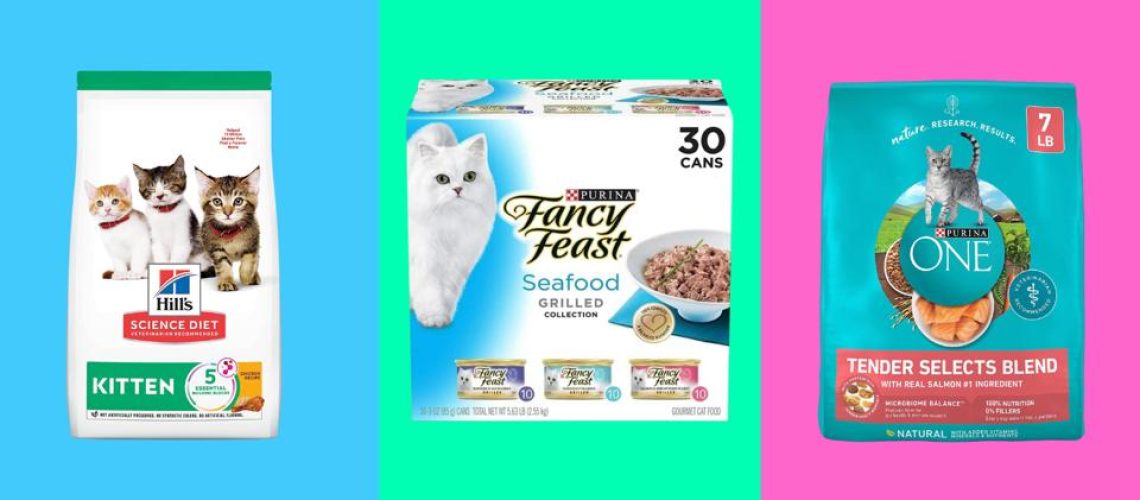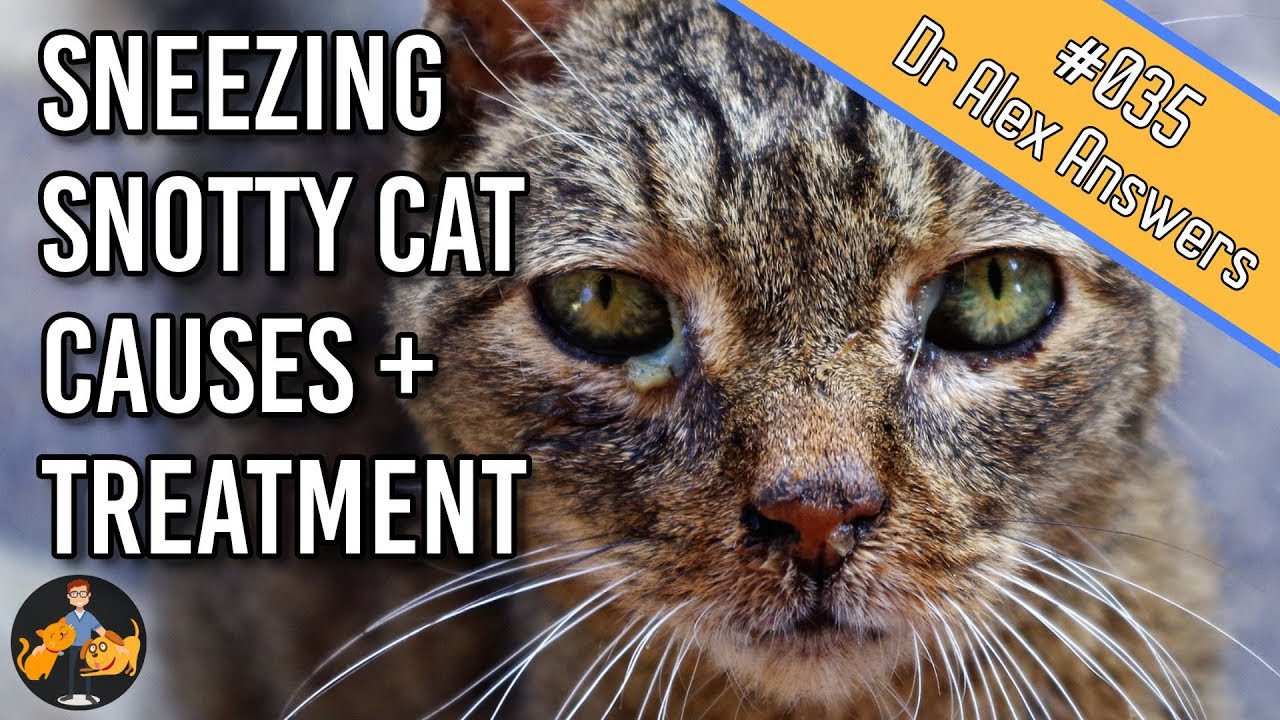Are you tired of dealing with a picky eater? Does your cat turn up their nose at every brand of food you bring home?
If so, you're not alone. Many cat owners struggle to find the right food that will satisfy their finicky feline friends. But fear not! In this article, we will explore the world of cat food brands and uncover the secrets to choosing the best ones for your picky eaters.
By understanding how to navigate the vast array of options available, you can ensure that your furry friend is getting all the nutrients they need while also satisfying their discerning palate. So let's dive in and discover the key to keeping your cat happy and well-fed!
Key Takeaways:
- Consider your cat's specific dietary needs and preferences when choosing a cat food brand.
- Look for cat food brands that use high-quality ingredients and avoid fillers or artificial additives.
- Consult with your veterinarian to determine the best cat food brand for your picky eater.
- Gradually introduce new cat food brands to allow your picky eater time to adjust to the taste and texture.
- Monitor your cat's response to different cat food brands and make adjustments as necessary to ensure their health and well-being.
What is a picky eater?
A picky eater is someone, or in this case, a cat, who is very selective about what they eat. They may refuse to eat certain types of food or only eat a small variety of foods. For cats, being a picky eater can be frustrating for their owners because it can be challenging to find something that the cat will enjoy and eat consistently.
There are various reasons why some cats are picky eaters. It could be due to their natural instincts, where they prefer certain flavors or textures over others. Some cats may have had negative experiences with certain foods in the past, leading them to avoid those foods in the future. Additionally, some cats may develop preferences based on their previous diet or feeding habits.
Reasons why some cats are picky eaters:
- Sensitivity to taste: Cats have more taste buds than humans and may be more sensitive to certain flavors. They may dislike bitter or strong-tasting foods.
- Texture preferences: Cats have unique preferences when it comes to food textures. Some may prefer wet food over dry kibble, while others may prefer crunchy textures.
- Past experiences: Cats may associate negative experiences with certain foods if they were unwell after eating them before. This can make them hesitant to try those foods again.
How to choose a good cat food brand for your pet?
Choosing the right cat food brand for your pet is essential for their overall health and well-being. Here are some factors to consider when selecting a good cat food brand:
- Nutritional content: Look for cat food brands that provide balanced nutrition and meet your cat's specific dietary needs. Check the label for essential nutrients like protein, fats, vitamins, and minerals.
- Quality of ingredients: Opt for cat food brands that use high-quality ingredients without fillers or artificial additives. Look for real meat as the primary ingredient.
- Brand reputation: Research the brand's reputation and read reviews from other cat owners to ensure that the brand has a good track record of producing reliable and safe cat food.
Things to consider when choosing cat food:
When choosing cat food, there are a few additional factors to keep in mind:
- Your cat's age: Different life stages require different nutritional needs. Consider whether your cat is a kitten, adult, or senior when selecting their food.
- Your cat's health condition: If your cat has any specific health conditions or dietary restrictions, consult with your veterinarian to find a suitable cat food brand that addresses those needs.
- Budget: Consider your budget when choosing a cat food brand. While it's important to prioritize quality, you should also find an option that fits within your financial means.
Important ingredients to look for in cat food:
When reading the labels of cat food brands, keep an eye out for these important ingredients:
- Protein sources: Cats are obligate carnivores and require high levels of animal-based protein. Look for named meat sources like chicken, turkey, or fish as the main ingredient.
- Taurine: Taurine is an essential amino acid for cats' heart health and vision. Ensure that the cat food contains adequate levels of taurine.
- Omega-3 fatty acids: Omega-3 fatty acids, found in fish oil or flaxseed, promote healthy skin and coat in cats. They also support joint health and overall well-being.
Tips for introducing new foods to picky eaters:
Introducing new foods to picky eaters can be a gradual process. Here are some tips to help your cat become more accepting of different types of food:
- Mix new food with familiar food: Start by mixing a small amount of the new food with their regular food. Gradually increase the proportion of the new food over time.
- Offer variety: Cats can get bored with the same food every day. Experiment with different flavors and textures to find what they like.
- Be patient: It may take time for your cat to adjust to new foods. Don't give up too quickly; continue offering different options until you find something they enjoy.
Tricks to encourage picky eaters to try different types of food:
If your cat is particularly stubborn when it comes to trying new foods, here are some tricks you can try:
- Add a treat or topping: Sprinkle a small amount of their favorite treat or a tasty topping on top of the new food to entice them.
- Serve at room temperature: Some cats prefer their food slightly warmed up. Serve the new food at room temperature or gently warm it before offering it to your cat.
- Presentation matters: Cats are visually stimulated, so try presenting the new food in an appealing way, such as in a different bowl or on a special plate.
The impact of age and health on a cat's preference for certain cat food brands:
A cat's age and health can influence their preference for certain cat food brands. For example:
- Kittens: Kittens have specific nutritional needs to support their growth and development. Look for cat food brands formulated specifically for kittens.
- Adult cats: Adult cats require a balanced diet to maintain their overall health. Consider their activity level and weight management when choosing a cat food brand.
- Senior cats: Senior cats may have specific dietary requirements, such as lower calorie content or joint support. Look for cat food brands that cater to the needs of older cats.
- Cats with health conditions: Cats with certain health conditions, like allergies or urinary issues, may require specialized diets. Consult with your veterinarian to find an appropriate cat food brand that addresses those concerns.
Reasons why some cats are picky eaters
Limited Taste Preferences
Some cats have a limited range of taste preferences, which can make them picky eaters. Just like humans, cats have individual preferences when it comes to flavors and textures. Some cats may prefer fish-based foods, while others may prefer poultry or beef. It's important to understand that these preferences are natural and can vary from cat to cat.
Past Negative Experiences
Another reason why some cats are picky eaters is due to past negative experiences with certain types of food. For example, if a cat had an upset stomach after eating a particular brand or flavor of food, they may develop aversions towards it. Cats have a strong memory and can associate unpleasant experiences with specific foods, leading them to avoid those options in the future.
How to choose a good cat food brand for your pet?
Choosing the right cat food brand is crucial for your pet's health and well-being. Here are some factors to consider when making this decision:
Quality Ingredients
Look for cat food brands that use high-quality ingredients. Check the label for real meat as the primary ingredient, avoiding fillers such as corn or wheat. Cats are obligate carnivores, meaning their diet should primarily consist of animal protein.
Nutritional Balance
Ensure that the chosen cat food brand provides a balanced diet for your pet. Look for labels indicating that the food meets the nutritional standards set by organizations like the Association of American Feed Control Officials (AAFCO). These standards ensure that the food contains all the necessary nutrients required for your cat's overall health.
Things to consider when choosing cat food
When selecting cat food, there are several important factors to keep in mind:
Life Stage
Consider your cat's life stage when choosing their food. Kittens have different nutritional needs compared to adult or senior cats. Look for cat food specifically formulated for their age group to ensure they receive the appropriate nutrients.
Food Allergies or Sensitivities
If your cat has known allergies or sensitivities, it's essential to choose a cat food brand that avoids those specific ingredients. Common allergens for cats include grains, dairy products, and certain proteins like beef or fish. Consult with your veterinarian to determine the best options for your cat.
Important ingredients to look for in cat food
When examining the ingredient list of cat food, keep an eye out for these important components:
High-Quality Protein Sources
Cats require a diet rich in high-quality protein sources such as chicken, turkey, or fish. These proteins provide essential amino acids necessary for maintaining muscle mass and overall health.
Taurine
Taurine is an essential amino acid that cats cannot produce on their own. It plays a vital role in maintaining healthy heart function, vision, and reproductive health. Ensure that the chosen cat food brand includes taurine in its formulation.
Tips for introducing new foods to picky eaters
Introducing new foods to picky eaters can be challenging, but here are some tips to make the process smoother:
Gradual Transition
Start by mixing small amounts of the new food with their current favorite food. Gradually increase the proportion of the new food over several days until they are fully transitioned.
Example:
Mixing Textures
If your cat is picky about textures, try mixing different textures together. For example, mix dry kibble with wet food to provide a variety of textures in one meal.
Tricks to encourage picky eaters to try different types of food
Here are some tricks to entice picky eaters to try different types of food:
Food Toppers
Adding food toppers like freeze-dried meat or broth can enhance the flavor and aroma of the food, making it more appealing to picky eaters. These toppers can be sprinkled on top or mixed into their regular meals.
Interactive Feeders
Using interactive feeders or puzzle toys can make mealtime more engaging for picky eaters. These toys require cats to work for their food, stimulating their natural hunting instincts and increasing their interest in trying new foods.
The impact of age and health on a cat's preference for certain cat food brands
Age and health can significantly influence a cat's preference for certain cat food brands.
Dental Health
As cats age, they may develop dental issues that affect their ability to chew certain types of food. In such cases, softer or wet foods may be more appealing and easier for them to consume.
Example:
Health Conditions
Cats with specific health conditions may require specialized diets prescribed by veterinarians. For instance, cats with kidney disease might benefit from a low-protein diet. It's important to consult with a veterinarian to determine the most suitable cat food brand based on your cat's health needs.
By considering these factors, you can make informed decisions when it comes to your picky eater's dietary preferences and overall health. Remember, each cat is unique, so patience and understanding are key in finding the right food that satisfies their taste buds and meets their nutritional requirements.
In conclusion, when choosing the best cat food brands for picky eaters, it is important to consider their nutritional needs and preferences. By doing some research and trying different options, you can find a brand that your cat will enjoy and that provides them with the necessary nutrients for a healthy life.
What is the most recommended cat food brand?
According to Dr. Fadl, there are several trustworthy cat food brands to consider, such as Hill's Science Diet, Royal Canin, Purina Pro Plan, and Blue Buffalo, among others. It is recommended to consult with a veterinarian to determine the most suitable brand and formula for your cat's individual requirements.
What do you feed a super picky cat?
Feeding a selective cat can be challenging, but luckily you are there to take care of her. Baby food such as chicken, shredded beef, and turkey are popular choices for those with picky cats. However, it is important to check the labels and ensure that there are no harmful additives, as certain ingredients that are safe for babies may be harmful to cats.
How do you change a picky cat's food?
It is recommended to gradually transition to a new food over a period of a few weeks. Although it may seem like a lengthy process, it is important to be patient in order to prevent any issues. This is particularly important for cats, as they are creatures of habit and often resistant to immediate changes in their diet.
What is the #1 vet recommended cat food?
We have selected Hill's Prescription Diet a/d as the top veterinarian-recommended food for underweight or sickly cats due to its numerous benefits. Along with Hill's Prescription Diet, we have also evaluated four other veterinarian-recommended cat food brands and chosen the best recipes from each.
Why is my cat so picky with wet food?
If the weather is warm, dry cat food may absorb moisture and become stale. If your cat is refusing to eat their usual wet food, it could be because it is too cold. Keeping wet food in the fridge can cause it to lose its appealing scent, and cats won't eat food that they can't smell.
Do some cats prefer dry food over wet food?
Cats are known to have definite preferences when it comes to their food choices. They may lean towards dry food or wet food, and they may have a preference for pate or meat in gravy, the size or texture of kibbles, or other specific factors.

















